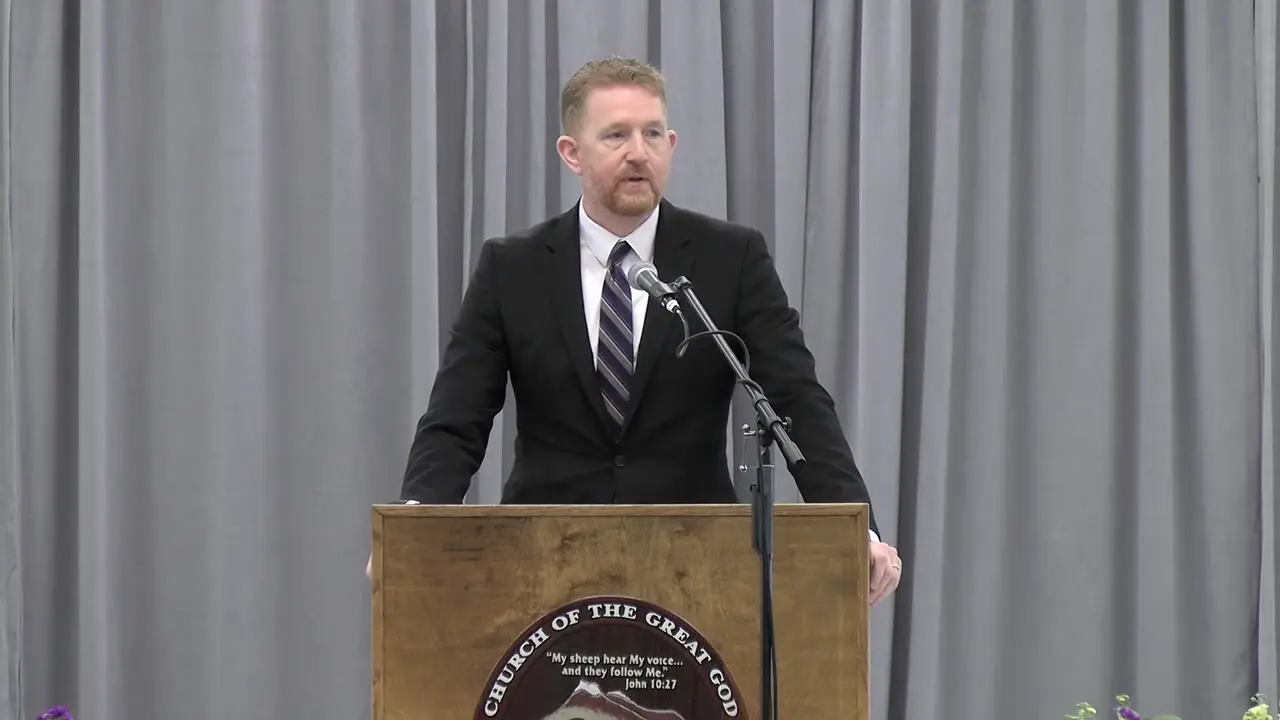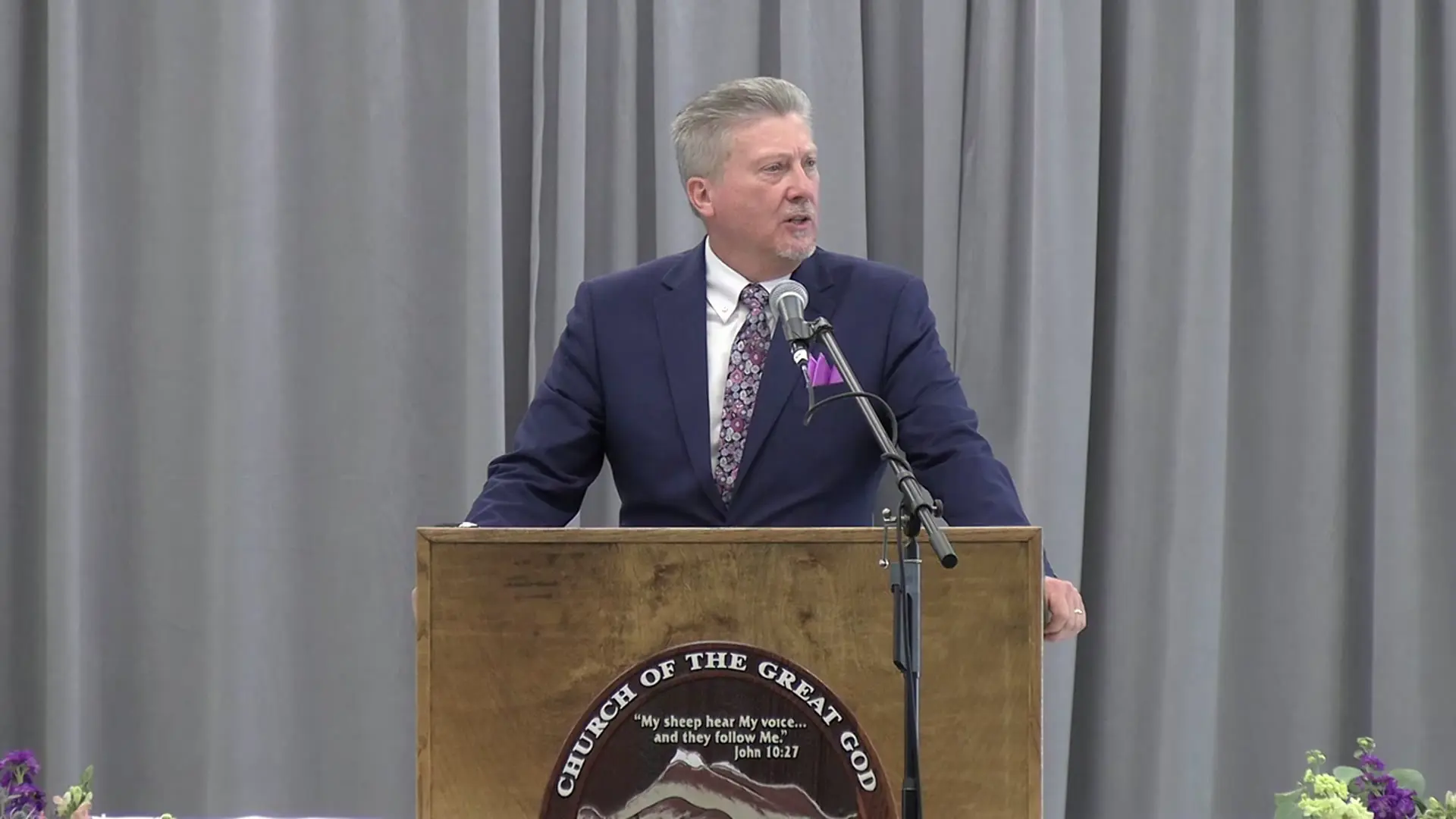Filter by Categories

The Tent of God
Article by Ronny H. GrahamLiving in tents is a significant theme, often symbolizing temporary dwellings. The first mention of tents appears with Cain's descendants, early cowboys who dwelt in tents and tended livestock. The Patriarchs—Abraham, Isaac, and Jacob—lived in tents as a way of life for many decades. Throughout their wilderness journey, the children of Israel also resided in tents for forty years, embodying impermanence. Although tents were among the earliest habitations of men, imagining living in one for a significant time feels daunting. Ancient tents, often called houses of hair, were functional despite their unappealing exteriors. Typically made of woven goat hair, they contracted when wet to form a seal against leaks. If torn, owners could easily weave patches to repair them. Surprisingly, these black tents maintained a cool temperature even in desert heat. Constructing such a tent could take up to a year, yet it could accommodate as many as ten people. Many were artistically crafted, with interiors stitched from dyed gazelle hide in vibrant colors, resembling tapestries. In the ancient Middle East, living in a tent daily for years, or even a lifetime, as the Patriarchs did, was common. Abraham, for instance, sat in the tent door during the heat of the day, possibly pitching his tent near trees for shade or windbreaks. Sarah may have shared the same tent or had her own adjacent one, a practice not uncommon for wives, often separated by a curtain. Most camps were set up around the patriarch, maintaining a close-knit arrangement. Though tent living as a way of life has largely disappeared, some Arabians strive to preserve their desert lifestyle by residing in traditional tents during moderate months, returning to houses in winter.
Tent of God
Sermonette by Ronny H. GrahamOur Lord and Savior Jesus Christ temporarily divested Himself of His divinity dwelling in a fleshly tent in order to empathize with God's chosen people.
Developing Spiritual Wanderlust
Feast of Tabernacles Sermon by David F. MaasWanderlust is the desire to travel and see new things. All of our patriarchs were pilgrims, seeking a more permanent homeland than the one they left behind.
What We Can Learn from Booths
Feast of Tabernacles Sermon by Richard T. RitenbaughGod intends for us to learn daily lessons from living in booths during the Feast of Tabernacles, a joyous time after the harvest has been taken in.

The Feasts of Tabernacles and Unleavened Bread
Feast of Tabernacles Sermon by David C. GrabbeIn this message, we learn the divine wisdom and unity within Almighty God's festivals (Leviticus 23) showing how each feast reveals His character, plan, and purpose for humankind. The speaker, using the method of comparison and contrast, exposes a chiastic structure or mirrored design connecting the spring and fall festivals, particularly Unleavened Bread and Tabernacles, both centering on deliverance, dwelling, and dependence on God, forming a complete picture of salvation through Christ. The pattern of one day followed by seven (Passover/Unleavened Bread) and seven days followed by one (Tabernacles/Last Great Day) symbolized the perfection and symmetry of His redemptive plan. Unleavened Bread focuses upon cleansing, sincerity, and feeding on Christ, the Bread of Life. Consequently, when we remove food from our dwellings, we purify every sphere of authority under God, thereby building a stable spiritual house upon Christ. Tabernacles, in contrast, emphasizes impermanence and humility, dwelling in temporary booths, reminding us of our dependence on God's daily provision in the wilderness. Together the permanence of houses and the transience of booths teach us that true security lies not in possessions or comfort but in Almighty God's sustaining presence. The physical symbols of food and dwelling illustrate some divine paradoxes. During Unleavened Bread, food lacks leaven—self-sufficiency and sin—but during Tabernacles, housing lacks permanence—worldly security and control. Through abundance and lack, permanence and transience, God's people learn to dwell in His presence, feed on His Word, and trust His timing.
Teachings From Tabernacles (2021)
Feast of Tabernacles Sermon by David C. GrabbeIf we neglect our cultivation of spiritual fruit during the year, the harvest will reflect that. The fruit of one's labors will be evident at harvest time.

Teachings from Tabernacles
Feast of Tabernacles Sermon by David C. GrabbeThe temporary dwellings remind us that nothing earthly is permanent nor our true inheritance, and that our focus must be on what God is doing.

Jesus in the Feasts (Part Five): Tabernacles
Feast of Tabernacles Sermon by Richard T. RitenbaughWe should consider the temporary dwellings as a foreshadowing of Christ as our ultimate Tabernacle—the divine presence with and within His people
Notes from the Trail
Sermonette by James C. StoertzAt the Feast of Tabernacles, we live in temporary dwellings, mirroring our temporary lives. Hiking and backpacking can teach us valuable things about this journey.
Ecclesiastes and the Feast of Tabernacles (Part 1)
Sermon by John W. RitenbaughLove for this world will inevitably bring disillusionment. Because the world is passing away, our priorities should be to fear God and keep his commandments.

Ecclesiastes Resumed (Part Thirty-Two): Ecclesiastes 8:1-9
Feast of Tabernacles Sermon by Richard T. RitenbaughEcclesiastes was to be read during the Feast of Tabernacles, emphasizing a state of temporariness, as God's people were commanded to live in temporary quarters.
The Handwriting Is On the Wall (Part One) (2007)
Feast of Tabernacles Sermon by John W. RitenbaughThe scattering of the church was God-ordained, providing a test for godliness. The isolating demonstrated by some groups is an abomination and an affront.
Remember the Rechabites!
Sermonette by Ted E. BowlingJonadab, who demonstrated his zeal toward God by assisting Jehu in ridding Israel of idolators, is one of the finest examples of fatherhood in the Bible.
Faith and the Christian Fight (Part Eight)
Sermon by John W. RitenbaughAbraham embodied living by faith. Through perpetually living in a tent, he demonstrated his complete trust and reliance upon God.
The Providence of God (Part Four)
Sermon by John W. RitenbaughWe must learn to let God provide blessings rather than, through crafty scheming life our forefather Jacob, grabbing them from others for themselves.
Christianity Is a Fight! (Part 1)
Sermon by John W. RitenbaughOur pilgrimage to the Kingdom will not be easy; we will suffer fatigue from difficult battles with serious consequences. We fight the world, Satan, and our flesh.
All Sifted Like Wheat (Part Three)
Sermon by Mark SchindlerThe peace of Christ does not take place in a democratic compromise and tolerance of evil as the politics of the world advocates, but in submitting to God.
Abraham's Sacrifice (Part One): Faith Perfected
Sermon by Richard T. RitenbaughThe Scriptures place a paramount importance on sacrifice. Abraham's 'sacrifice' of Isaac confirmed him to the position of father of the faithful.
Psalm 51 (Part One): Background
Sermon by Richard T. RitenbaughDavid's power and assumption of immunity led to arrogance, complacency, and a total disregard for God's commands, bringing an unpleasant visit from Nathan.